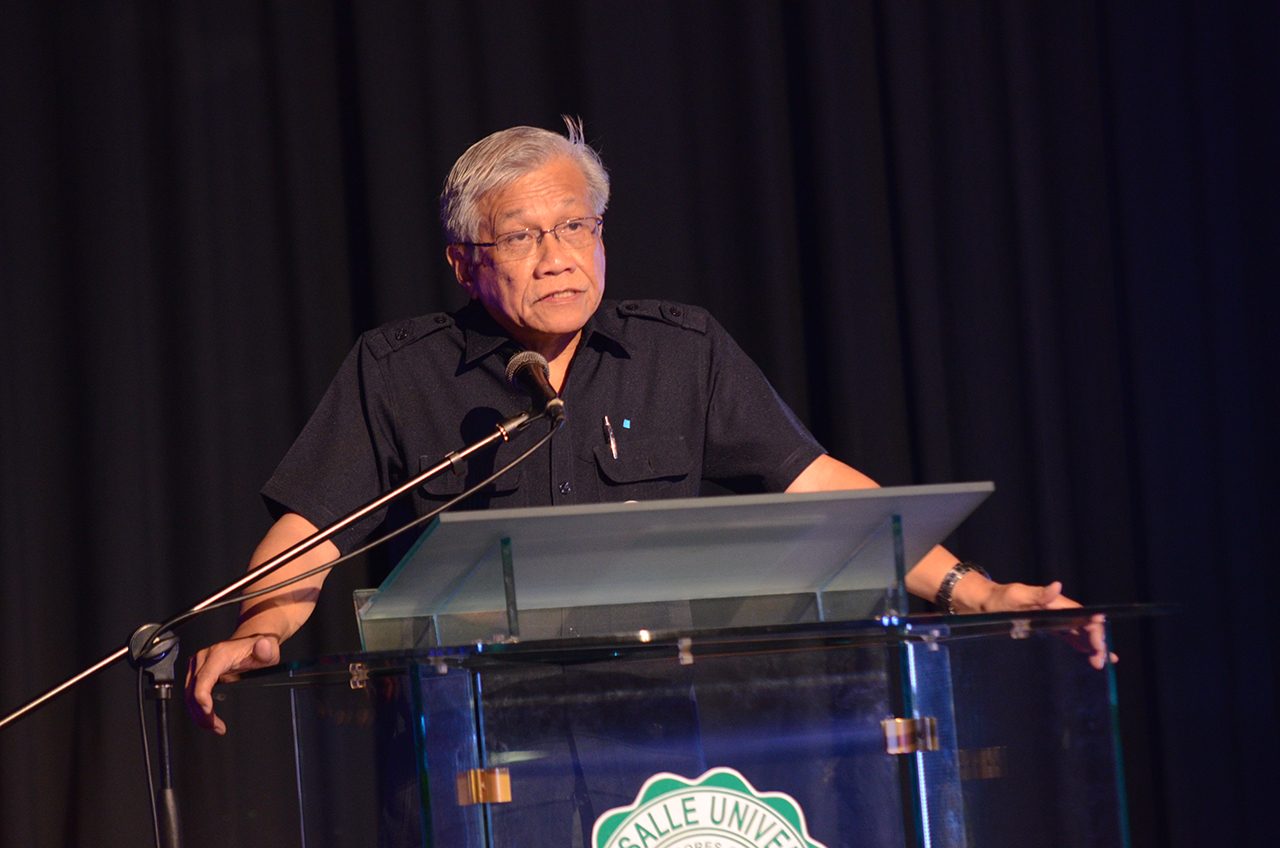SUMMARY
This is AI generated summarization, which may have errors. For context, always refer to the full article.

I would like to thank the organizers for inviting me to share my ideas on the critical challenges that our country faces today that must be addressed head on by any aspiring candidate.
First of all, she or he must deal with the problem of good governance. The current administration used the Daang Matuwid as its platform to come to power. Unfortunately, the President subverted it by using double standards, going after his enemies while tolerating corruption, inefficiency, and recklessness among his friends and allies. Double standards coupled with a fraternity-like loyalty to erring subordinates produced two great debacles, the Disbursement Acceleration Program masterminded by Budget Secretary Butch Abad and the Mamapasano tragedy managed by former National Police chief Alan Purisima.
Second, an aspiring candidate must deal decisively with the issue of poverty, which continues to affect 28 per cent of our population, and inequality, which is one of the worst in Asia. The outgoing administration had a powerful instrument to reach this end, the Agrarian Reform Extension Law or CARPER, but it failed to effectively use it due to bureaucratic timidity. By the time of the end of the program on June 30, 2014, some 700,000 hectares of the best lands in the country were left undistributed. This, in my view, is the greatest failure of the Aquino administration and it is one that will haunt its successor.
Third, the next administration must place development front and center and abandon the neoliberal policies which have led to deindustrialization, the destabilization of agriculture, and the massive expulsion of our labor force to the global wilderness known as the labor-export policy.
Among the first tasks must be the repeal of the Automatic Appropriations Act that mandates that full repayment of the debt to foreign and domestic creditors must take the first cut of the national budget. Some 20 to 40 percent of the budget has gone to foreign debt servicing yearly over the last three decades, and this has gutted the capital expenditures that the state must devote to infrastructure and social needs essential to stimulating development. Also necessary are a industrial policy and a trade policy aimed at saving what is left of our industrial base while reinvigorating the badly damaged areas.
Fourth, the next president must make it a priority to repeal the Electric Power Industry Reform Act. Instead of bringing us lower prices, efficiency, and greater competition, EPIRA, the centerpiece of which was the privatization of all phases of the power industry, brought us some of the highest power prices in the world, more inefficiency in electric power delivery, and monopoly. One of the strategic debacles of the current administration was to waste its time for a whole year, 2014, seeking emergency powers for a crisis that never came instead of reforming or replacing EPIRA. Now there is simply no prospect that in the six months of working time left to the administration, the EPIRA problem can be tackled.
The next president must also prioritize climate proofing the country to the extent that is possible, securing the passage of the Bangsa Moro Basic Law, and conducting a balanced foreign policy that does not deliver us lock, stock, and barrel into the hands of one superpower in the effort to counter the moves of the other. Mamasapano illustrates the dangers of adopting a security policy that prioritizes the interests of the United States instead of the interests of the Philippines. One cannot have a one-dimensional foreign policy in the most geopolitically complex region of the world.
Finally, let me end by saying that one of the greatest challenges is saving democracy in this country. Many among our young people are rightfully disillusioned with a liberal democratic system that has been given nearly 30 years to radically reduce poverty, inequality, and corruption but has failed miserably. Not surprisingly, many are being seduced by the prospect of the man or woman on horseback that promises to “end the democratic stalemate,” to use the words of the departed dictator.
The next administration may well be the last chance to convince them that democracy can deliver.
I do not mean to imply anything with this analogy but Napoleon III came to power 37 years after Napoleon Bonaparte fell. Never underestimate the politics of restoration, especially in a country with a short memory. – Rappler.com
Bello delivered this speech at the #PHVote forum on ‘The Leader I Want’ organized by the Building Inclusive Democracy Consortium, De La Salle University’s College of Liberal Arts, and Rappler on May 12, 2015, at the DLSU campus in Manila. Watch the forum here.
Add a comment
How does this make you feel?
There are no comments yet. Add your comment to start the conversation.